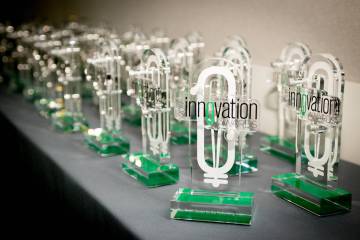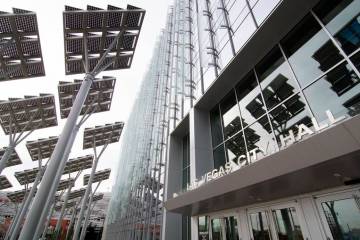First Monday in October. Back half of June.
These two points on the political calendar mark the start and end of the Supreme Court session. And this year’s wrap-up was quite a show.
Certainly gay marriage captured the headlines. And we have a piece about the Fair Housing ruling on Page 20 of this issue.
But let’s talk a little about coal and a little more about what justice delayed means to business.
The case before the court was Michigan v. EPA. On a 5-4 vote, the court found the EPA had erred in putting out rules governing the release of mercury and greenhouse gases. Cost should have been taken into consideration earlier in the process, the justices said as they sent the matter back to a lower court for a rehearing.
OK. Good to know. Maybe it’ll have some effect going forward and change the way the bureaucrats consider economic effects.
But those particular rules were years in the making and went into effect in April. Power producers were among those under the gun to change or face federal fines.
So power producers had no choice but to obey the EPA rules as written.
Many coal-fired plants were shut down, including those at the Moapa facility in Nevada. There was no real alternative. Bringing them up to the new federal expectation would have been economically prohibitive.
So this Supreme Court ruling was a hollow one for the coal industry and its dwindling number of supporters. Even when backed by the Supreme Court, these folks are just victims of a system that delays delivering justice so long that losers can become winners and winners can become losers.
Cases like this have to make us wonder if there isn’t a better way. Unfortunately, the facts seem to point in a different, scarier direction.
At some point, we all need certainty in the rules under which we operate. In this matter, the beleaguered forces of coal had to accept the EPA rules as that certainty and plan accordingly. That meant closing the coal-fired plants.
“We’re not bringing them back,” Nick Akins, CEO, president and chairman of energy company AEP, told the website Politico after the court’s ruling. “Once that ball gets rolling, it’s not going to change.”
Of course he’s correct. And the silence you’re hearing is the national yawn. Greenhouse gases are down there with used-car salesmen and members of Congress in most national polling.
In the case of gay marriage, the news is of this historic shift in national opinion that’s taken place in a matter of a few years. In terms of our history, that’s an amazing shift.
But set that opinion shift down alongside the stampede to get as far away as possible from the Confederate flag. That’s a conversation that’s been on simmer for 150 years. The flag survived the civil rights era and many gruesome incidents. But once opinion turned, it was a rout.
The point here is not declaring winners, left vs. right or Michigan v. EPA. Rather it’s about finding a way to move forward with lives and businesses with some certainty that you know the rules of the game.
Increasingly, it feels like the best judge of the prevailing wind is the science of predictive modeling, which keeps making quantum leaps with the availability of big data.
So have we reached a point where, in this badly fragmented political climate, the best way for a business to view the future is through the lens of big data as applied to politics?
Let’s hope not. That would lead us toward a variant of China’s 10-year plans. The U.S. model could become an 8-year plan — expansion if your party wins and a defensive shell if your party loses.
That seems an awful way to do business and an awful way to live.
At least we’ll have a front row seat for the political drama as presidential candidates sweep through our deeply purple state in search of an edge that will deliver our electoral votes — some of just a few dozen that will be in doubt in 2016.
Of course we might need a coal miner to identify that as the light at the end of the tunnel.







